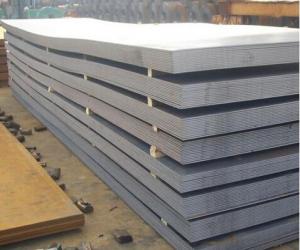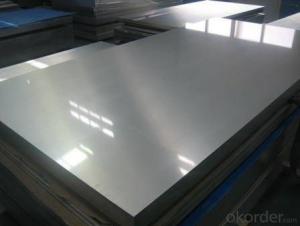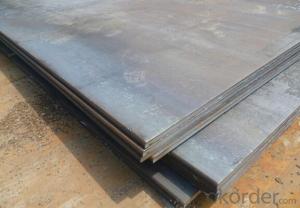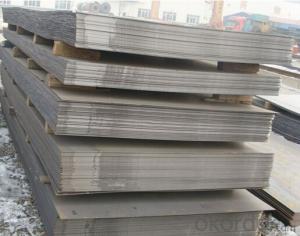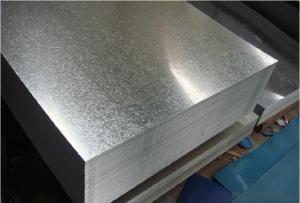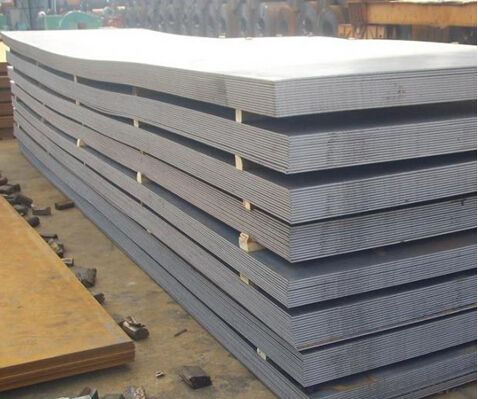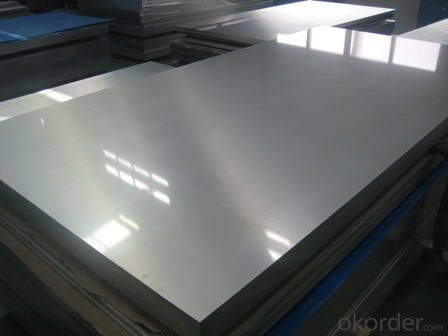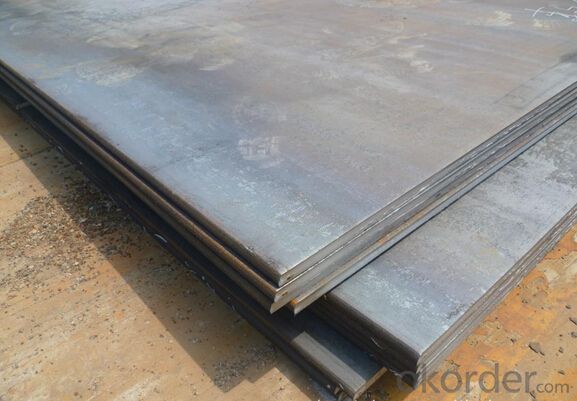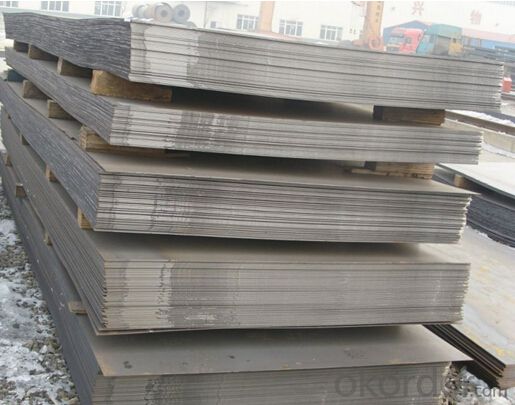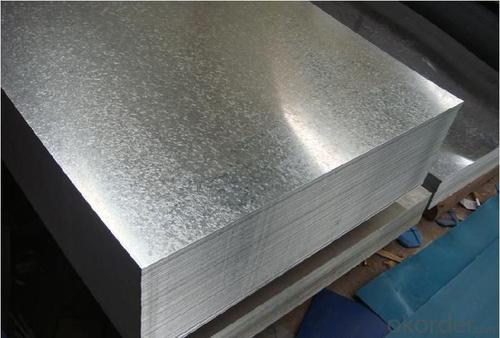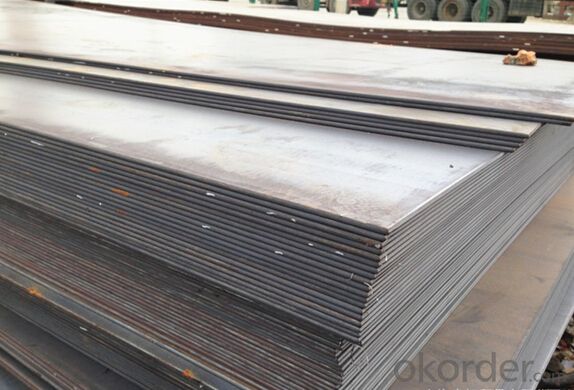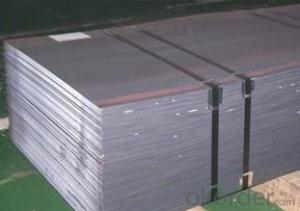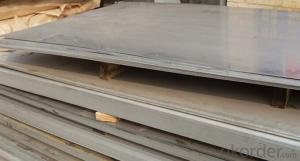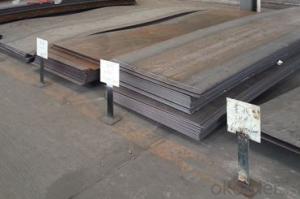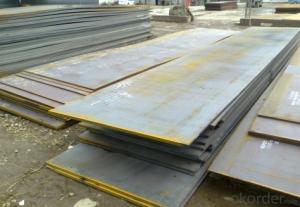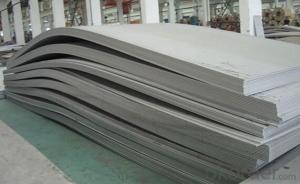ASTM A569 Hot Rolled Carbon Steel Plate_Carbon Steel Sheet
- Loading Port:
- Tianjin
- Payment Terms:
- TT OR LC
- Min Order Qty:
- 3 m.t.
- Supply Capability:
- 10000 m.t./month
OKorder Service Pledge
OKorder Financial Service
You Might Also Like
Specification
Specification of ASTM A569 Hot Rolled Carbon Steel Plate_Carbon Steel Sheet
Thickness:0.6-200mm
Width:500-4000mm
MOQ: 1 ton
Certificate:ISO,SGS
Details of ASTM A569 Hot Rolled Carbon Steel Plate_Carbon Steel Sheet
Commodity | Prime hot rolled carbon steel plate / sheet dimensions |
Thickness | 0.6-200mm |
Width | 1000-4000mm |
Length | as custom's request |
Technique | Cold rolled or hot rolled mild steel plate |
Surface treatment | Bare, galvanized coated or as customer's requirements. |
Standard | ASTM,EN,GB,JIS |
Material | A283Gr.D/A573Gr.65,A516Gr65,A516Gr70,A284Gr.D SS400,SS300,CCSB A36,A32,LRA32,LRB,Q235 SAE1010,SAE1020,SAE1045,Q195,Q235,Q345,SS400,ASTM A36,E235B |
Usage | Used in home appliances construction, machinery manufacturing, container manufacturing, shipbuilding, bridges, etc. |
Terms of Payment | 30% T/T as deposit and 70% T/T balance againest B/L copy. |
Delivery Detail | Within 3-15 days after receipt of deposited for the mild steel plate |
CNBM Introduction of ASTM A569 Hot Rolled Carbon Steel Plate_Carbon Steel Sheet
CNBM International Corporation is the most import and export platform of CNBM group(China National Building Material Group Corporation) ,which is a state-owned enterprise, ranked in 270th of Fortune Global 500 in 2015.
With its advantages, CNBM International are mainly concentrate on Cement, Glass, Iron and Steel, Ceramics industries and devotes herself for supplying high quality series of refractories as well as technical consultancies and logistics solution.
After-sale service |
|
Advantages
|
|
Packaging & Delivery of ASTM A569 Hot Rolled Carbon Steel Plate_Carbon Steel Sheet
Packaging Detail | Sea worthy packing /as per customer's packing instruction |
Delivery Detail | 15 ~ 40 days after receiving the deposit |
Products
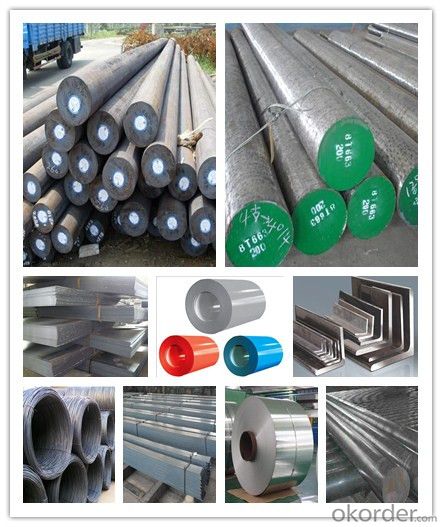
FAQ:
Are you a trading company or manufacturer? | Manufacturer |
What’s the MOQ? | 3 metric ton |
What’s your delivery time? | 15-35 days after downpayment received |
Do you Accept OEM service? | Yes |
what’s your delivery terms? | FOB/CFR/CIF |
What's the Payment Terms? | 30% as deposit,70% before shipment by T/T |
Western Union acceptable for small amount. | |
L/C acceptable for large amount. | |
Scrow ,Paybal,Alipay are also ok | |
Why choose us? | Chose happens because of quality, then price, We can give you both. Additionally, we can also offer professional products inquiry, products knowledge train (for agents), smooth goods delivery, excellent customer solution proposals. |
What's your available port of Shipment? | Main Port, China |
What’s your featured services? | Our service formula: good quality+ good price+ good service=customer's trust
|
Where are your Market? | Covering more than 160 countries in the world |
- Q: How can I determine the cooling water flow of square billet mold for special steel?
- The mould water quantity is calculated according to experience. The cooling water quantity of mould is calculated according to the periphery length of mould:W=2 (L+D) - QkW in mould -- cooling water quantity of mould;L - slab width, mm;D - slab thickness, mm;Qk - water flow per unit length, L/ (min = mm), for billet mold, 2.0~3.0L/ (min. Mm).
- Q: How does special steel contribute to the telecommunications aftermarket industry?
- The telecommunications aftermarket industry heavily relies on special steel to manufacture and maintain telecommunications equipment. This type of steel is specifically designed to possess exceptional properties, such as high strength, corrosion resistance, and durability, which are crucial for the demanding conditions of the telecommunications sector. One of the main contributions of special steel to the telecommunications aftermarket industry is its use in the production of communication towers and transmission structures. These structures must endure extreme weather conditions, such as strong winds and heavy loads, while providing reliable support for antennas and other equipment. Special steel meets these requirements, ensuring the longevity and stability of communication towers. Moreover, special steel is extensively used in manufacturing cables and wires for telecommunications systems. These cables must transmit signals without any loss or interference, and the unique properties of special steel, such as high electrical conductivity and low resistance, make it an ideal material for this purpose. The use of special steel in cables helps maintain the quality and efficiency of telecommunications networks. Another significant contribution of special steel is its role in producing equipment enclosures and cabinets. These enclosures protect sensitive electronic components from environmental factors, including moisture, dust, and extreme temperatures. Special steel, with its corrosion-resistant properties, ensures the longevity and reliability of these enclosures, safeguarding the valuable equipment inside. Furthermore, special steel is also utilized in manufacturing various components and accessories used in the telecommunications aftermarket industry, such as connectors, brackets, and hardware. These components are essential for assembling and maintaining telecommunications equipment. Special steel's high strength and durability make it the preferred choice for these components, guaranteeing their long-lasting performance. In conclusion, special steel significantly contributes to the telecommunications aftermarket industry by providing the necessary materials for manufacturing and maintaining telecommunications equipment. Its exceptional properties, including high strength, corrosion resistance, and durability, make it an ideal choice for communication towers, cables, enclosures, and various components. By utilizing special steel, the telecommunications industry ensures the reliability, efficiency, and longevity of its equipment, ultimately benefiting both service providers and end-users.
- Q: How does special steel contribute to the chemical industry?
- Special steel plays a crucial role in the chemical industry by offering exceptional corrosion resistance and high temperature resistance properties. It is used to manufacture various equipment such as storage tanks, pipelines, valves, and reactors, which are essential for handling corrosive chemicals and operating under extreme conditions. Special steel ensures the integrity and safety of these structures, preventing leaks and maintaining product quality, thus enabling efficient and reliable chemical processes.
- Q: How is high-strength stainless steel used in the production of structural components?
- High-strength stainless steel is commonly utilized in the production of structural components due to its remarkable properties. Its high tensile strength, corrosion resistance, and durability make it ideal for constructing critical load-bearing structures such as bridges, buildings, and infrastructure. Additionally, the stainless steel's ability to withstand extreme environmental conditions and its aesthetic appeal further enhance its usage in various structural applications.
- Q: How does special steel contribute to the aerospace industry?
- Special steel contributes to the aerospace industry by providing excellent strength, durability, and high-temperature resistance. It is crucial in manufacturing aircraft components such as engine parts, landing gear, and structural elements. Special steel's unique properties enable lighter and more fuel-efficient aircraft, enhancing performance and reducing maintenance costs. Additionally, its corrosion resistance ensures the longevity and safety of aerospace structures, making it an essential material in the industry.
- Q: How does special steel perform under extreme cold conditions?
- Special steel is specifically engineered for optimal performance in frigid conditions. It demonstrates exceptional resistance to low temperatures and retains its strength and toughness even in freezing conditions. This is accomplished by incorporating alloying elements, such as nickel, chromium, and molybdenum, which enhance the steel's ability to remain pliable and resist brittle fractures. In frigid temperatures, regular steel tends to become brittle and prone to easy fracturing. However, special steel showcases remarkable toughness and resilience. It can endure extremely low temperatures while preserving its mechanical properties, rendering it suitable for various applications in cold settings. Furthermore, special steel boasts excellent corrosion resistance, a critical attribute when exposed to extreme cold environments. Cold environments can expedite corrosion due to factors like moisture, salt, and freezing and thawing cycles. Nevertheless, the corrosion-resistant nature of special steel prevents deterioration and upholds its structural integrity. Moreover, special steel possesses exceptional thermal conductivity, facilitating efficient heat transfer even in exceedingly low temperatures. This characteristic proves essential in applications where heat transfer plays a vital role, such as cryogenic systems or cold storage facilities. All in all, special steel's outstanding performance in extreme cold conditions positions it as an ideal material for a multitude of industries and applications, including aerospace, oil and gas, automotive, and construction. Its capacity to maintain strength, toughness, corrosion resistance, and thermal conductivity at low temperatures ensures reliable and secure operation in severe cold environments.
- Q: How is electrical steel used in the manufacturing of transformers?
- Electrical steel, also known as silicon steel, is crucial in the manufacturing of transformers due to its unique magnetic properties. It is used to construct the core of the transformer, which is responsible for transferring electrical energy from one circuit to another. The high magnetic permeability and low core losses of electrical steel help enhance the efficiency and performance of the transformer by reducing energy losses during the conversion process.
- Q: How does special steel perform in high-temperature fatigue resistance?
- Special steel performs well in high-temperature fatigue resistance due to its unique composition and heat treatment processes. It has enhanced mechanical properties, such as high strength and toughness, which enable it to withstand repeated cyclic loading and resist deformation, even at elevated temperatures. Additionally, special steel exhibits excellent thermal stability, preventing the degradation of its microstructure and maintaining its mechanical properties over time. Overall, special steel is a reliable material choice for applications requiring high-temperature fatigue resistance.
- Q: How does special steel contribute to reducing production costs?
- Special steel contributes to reducing production costs in several ways. Firstly, special steel has higher strength and durability compared to regular steel, which means that it can be used to make lighter and more efficient components. This leads to reduced material usage and lower costs. Additionally, special steel has superior corrosion resistance, which prolongs the lifespan of machinery and equipment, reducing the need for frequent repairs or replacements. Moreover, special steel can be customized to specific requirements, allowing for more precise manufacturing processes, minimizing waste, and optimizing production efficiency. Overall, special steel helps in minimizing material costs, maintenance expenses, and maximizing productivity, leading to significant reductions in production costs.
- Q: What are the specific requirements for special steel used in the railway track industry?
- The specific requirements for special steel used in the railway track industry include high strength, durability, and resistance to wear, fatigue, and corrosion. It must also possess good weldability and maintain its mechanical properties under varying temperatures and loading conditions. Additionally, the steel should comply with specific industry standards and undergo rigorous testing and quality control measures to ensure its reliability and safety for railway track applications.
Send your message to us
ASTM A569 Hot Rolled Carbon Steel Plate_Carbon Steel Sheet
- Loading Port:
- Tianjin
- Payment Terms:
- TT OR LC
- Min Order Qty:
- 3 m.t.
- Supply Capability:
- 10000 m.t./month
OKorder Service Pledge
OKorder Financial Service
Similar products
Hot products
Hot Searches
Related keywords
